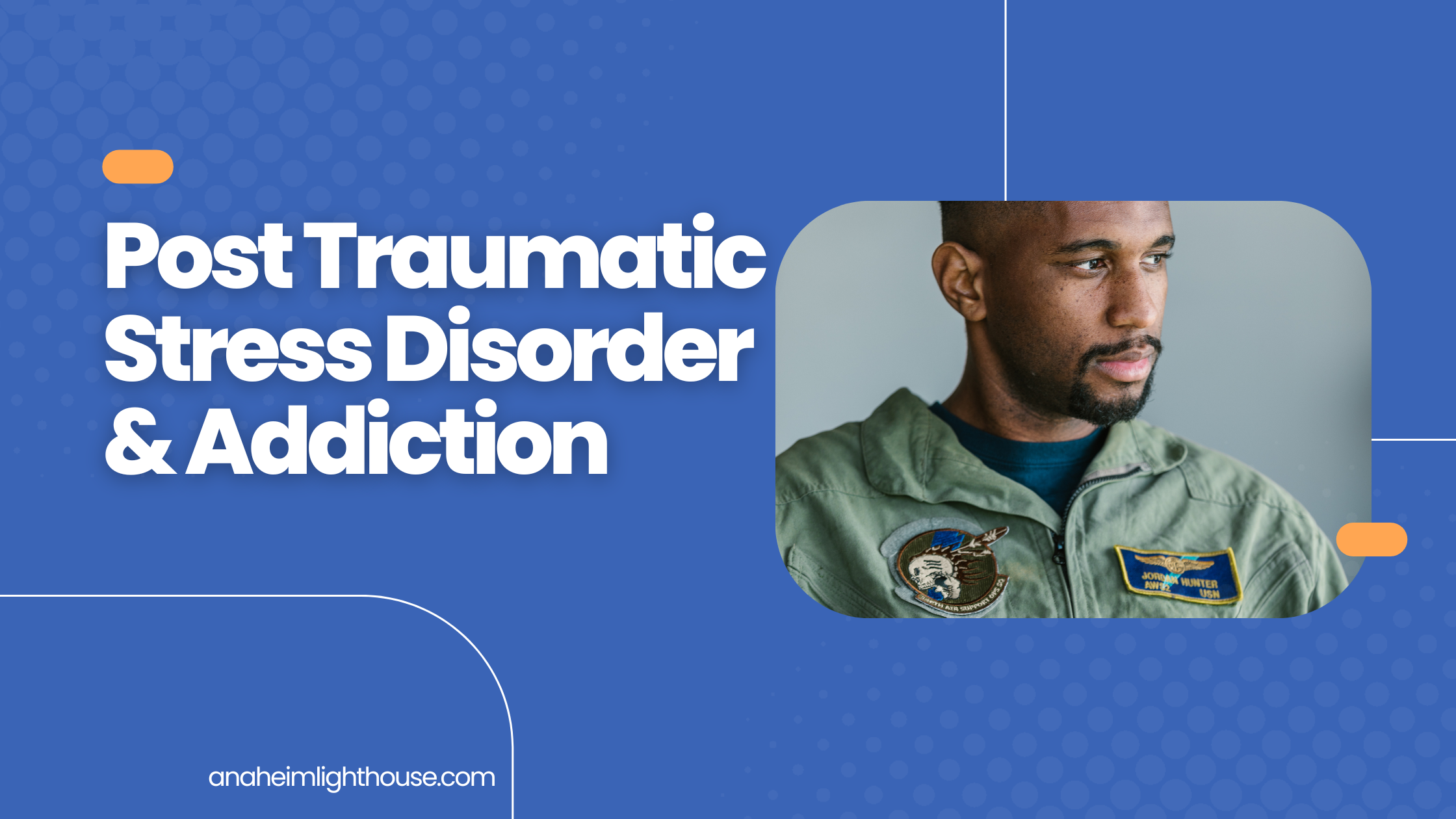Post Traumatic Stress Disorder And Addiction
It’s not uncommon for people who suffer from PTSD or post-traumatic stress disorder to also struggle with addiction. The link between these two disorders is strong, and understanding it is important for anyone who suffers from both conditions.
In this article, we will explore the link between PTSD and addiction, how the two disorders interact, and what treatments are available for people who suffer from both.
What Is PTSD?
PTSD is a mental health condition that can be triggered after someone witnesses or experiences an event that’s traumatic. This can include events like natural disasters, car accidents, military combat, and sexual assault.
Flashbacks, severe anxiety, uncontrollable thoughts, and nightmares about the trauma are all symptoms of PTSD. People who have been through traumatic events frequently feel as though they are in danger even when they are not.
PTSD can develop after any type of traumatic event, but some events are more likely to cause it than others. These include military combat, being the victim of or witnessing a violent crime, being involved in a natural disaster, or surviving a car accident.
If you’ve experienced or witnessed any type of trauma, it’s important to be aware of the symptoms of PTSD so that you can seek help if necessary.
The Link Between PTSD and Addiction
People who suffer from PTSD often turn to drugs or alcohol as a way to self-medicate their symptoms. That’s because substances like alcohol and drugs can temporarily relieve symptoms of anxiety and depression.
For example, drinking alcohol or using drugs can provide temporary relief from intrusive thoughts, nightmares, and flashbacks.
However, using substances as a way to cope with PTSD can lead to addiction — and often makes PTSD symptoms worse in the long run. That’s because people who suffer from addiction often experience even more problems with anxiety, depression, insomnia, and flashbacks than people who don’t struggle with substance abuse.
In other words, trying to self-medicate with drugs or alcohol only exacerbates the problems caused by PTSD.
Signs of PTSD and Addiction
Denial is common among people who suffer from both PTSD and addiction. That’s because it can be difficult to admit that you have a problem — especially if you’re using substances as a way to cope with your symptoms.
However, some signs may indicate that you’re struggling with both PTSD and substance addiction. These can include the following symptoms:
- Using substances more frequently or in higher doses than you intended to use them
- Continued use of substances even though they’re causing problems in your life
- Engaging in risky behavior while under the influence of substances
- Feeling unable to control your use of substances
- Neglecting work, school, or other important obligations in favor of using substances
- Isolating yourself from friends or family members
- Experiencing financial problems due to your use of substances.
PTSD and Substance Abuse in Veterans
For many veterans, returning to civilian life can be a difficult adjustment. Coming from a high-stress environment and dealing with the aftermath of traumatic events can be overwhelming. It’s not uncommon for veterans to experience nightmares, flashbacks, and other symptoms of PTSD.
In addition, many veterans turn to drugs or alcohol as a way to cope with their symptoms. This can lead to a dual diagnosis of PTSD and Substance Use Disorder. According to studies, about one in three people who seek treatment for Substance Use Disorder also suffer from PTSD. While each condition is treatable on its own, it is important to seek help from a professional who is experienced in treating both conditions.
Unfortunately, many traditional substance abuse treatment programs are not equipped to deal with the complex needs of veterans with dual diagnoses. As a result, many veterans end up cycling through multiple treatment programs without ever achieving lasting sobriety. Thankfully, there are now specialized dual diagnosis treatment programs that are designed specifically for veterans.
Treatment Options for PTSD and Addiction
PTSD and addiction are both serious mental health conditions that can have a profound impact on your life. If you suffer from both conditions, it’s important to seek dual diagnosis treatment as soon as possible. There are effective treatments available for both PTSD and addiction — but only if you seek help from a qualified mental health professional.
Don’t try to self-medicate with drugs or alcohol — doing so will only make your symptoms worse. And don’t try to tough it out on your own. The sooner you seek help, the sooner you can start on the path to recovery.
A specialized treatment program from an addiction treatment facility that is experienced in treating PTSD at the same time can provide you with the help you need. These programs use a combination of medication, therapy, and other evidence-based treatments to help you achieve lasting sobriety.
















